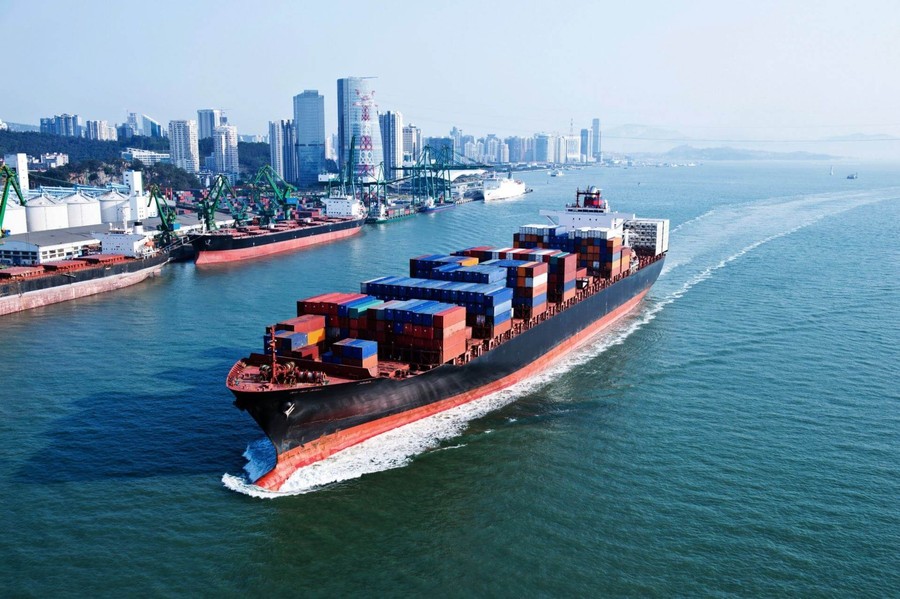Understanding Ship Management
In the vast and complex world of maritime logistics, ship management plays a crucial role. Whether it’s a bulk carrier transporting minerals across continents or a container ship sailing from Shanghai to Rotterdam, the operations behind the scenes are what ensure smooth sailing. Ship management involves the administration, operation, and technical maintenance of vessels, often on behalf of the ship owners. This article explores the ins and outs of ship management, including its functions, types, challenges, and future trends.
What is Ship Management?
Ship management refers to the professional handling of a ship’s operations and maintenance. Ship owners often delegate this task to third-party companies known as ship management companies. These entities take care of various aspects like technical maintenance, crewing, procurement, and ensuring compliance with international maritime regulations.
Key Purpose of Ship Management:
- Maintain the vessel’s operational efficiency
- Ensure safety and regulatory compliance
- Maximize profitability and performance
- Manage crew, logistics, and repairs effectively
Types of Ship Management Services
There are multiple facets to ship management, and companies may offer one or more of the following services:
1. Technical Management
This includes the upkeep and regular maintenance of the ship. It covers:
- Engine performance
- Hull integrity
- Regular inspections and audits
- Dry docking and repairs
- Monitoring fuel efficiency and emissions
2. Crew Management
Crew management involves recruiting, training, and maintaining the ship’s personnel. It includes:
- Manning the ship with qualified seafarers
- Payroll and contracts
- Medical insurance and travel arrangements
- Compliance with STCW and MLC regulations
3. Commercial Management
Some ship managers also handle the commercial aspects, including:
- Chartering the ship (voyage or time charter)
- Voyage planning and execution
- Freight negotiations
- Billing and collections
4. Operational Management
Day-to-day operations are crucial for efficient ship handling. These tasks include:
- Route planning
- Cargo handling
- Port operations
- Documentation and reporting
5. Safety & Quality Management
This includes ensuring the vessel meets all the necessary safety, security, and environmental standards:
- ISM Code compliance
- Risk assessment and incident management
- Health and safety audits
- Emergency response planning
Who Uses Ship Management Services?
Ship owners, investors, and shipping companies often outsource management to third parties to:
- Reduce operational burden
- Tap into specialized expertise
- Ensure international compliance
- Focus on profitability and fleet expansion
Clients include:
- Oil and gas companies
- Bulk cargo carriers
- Container shipping companies
- Cruise ship operators
- Offshore platform owners
Benefits of Professional Ship Management
Hiring a ship management company brings several advantages:
✅ Expert Knowledge
Experienced managers understand the nuances of maritime law, engineering, and logistics.
✅ Cost-Efficiency
Effective budgeting, fuel consumption monitoring, and bulk procurement reduce costs.
✅ Enhanced Safety
Regular inspections, drills, and crew training ensure safety at sea and in port.
✅ Compliance Assurance
Managers ensure the vessel complies with IMO regulations, SOLAS, MARPOL, and other conventions.
✅ 24/7 Support
Professional firms provide round-the-clock operational and emergency support worldwide.
Challenges in Ship Management
Despite its many benefits, ship management isn’t without its difficulties.
⚠️ Rising Operational Costs
Fuel prices, crew wages, and port fees are constantly increasing.
⚠️ Environmental Regulations
Keeping up with IMO 2020 sulfur caps, ballast water management, and carbon emissions rules requires regular upgrades.
⚠️ Crew Shortages
Finding and retaining skilled crew members is becoming harder due to global labor shortages.
⚠️ Cybersecurity Risks
As ships become more digitized, cyber threats to navigation and operations are rising.
⚠️ Political and Geopolitical Issues
Sanctions, piracy, war zones, and trade restrictions can disrupt maritime operations.
The Role of Ship Management Companies
Professional ship management companies offer turnkey solutions to shipowners. Here are some of the top players in the global market:
- V.Group
- Bernhard Schulte Shipmanagement (BSM)
- Anglo-Eastern
- Wallem Group
- Thome Group
These firms operate globally, managing thousands of vessels of all types—from oil tankers and LNG carriers to bulkers and cruise liners.
Ship Management and Digitalization
The future of ship management is increasingly digital. Emerging technologies are transforming operations and compliance in several ways:
🔹 Fleet Performance Monitoring Systems
Advanced analytics tools help track fuel consumption, CO₂ emissions, and engine health in real time.
🔹 Crew Management Software
Digital platforms streamline hiring, training, scheduling, and HR compliance.
🔹 Predictive Maintenance
IoT devices and sensors can predict mechanical issues before they become critical.
🔹 Electronic Logbooks and E-Navigation
Digital record-keeping and satellite-based route optimization improve safety and reduce paperwork.
Green Ship Management: The New Standard
With the growing emphasis on sustainable shipping, ship management companies are taking initiatives such as:
- Installing scrubbers to reduce sulfur emissions
- Using LNG or biofuels instead of heavy fuel oil
- Implementing slow steaming to reduce fuel usage
- Adopting hybrid and electric propulsion systems
- Integrating zero-emission designs in new builds
These steps help companies meet ESG goals and comply with upcoming international maritime environmental rules.
How to Choose the Right Ship Management Company
Choosing a reliable ship management partner is critical to success. Here’s what to consider:
📌 Experience & Fleet Size
Check their experience with your type of vessel and the number of ships managed.
📌 Certifications & Accreditations
Look for certifications like ISO 9001, ISO 14001, and ISM Code compliance.
📌 Technology Adoption
A good company invests in digital tools and automation.
📌 Safety Record
Review incident history and emergency response readiness.
📌 Global Presence
A wide port network and multilingual staff can be a big advantage.
Conclusion
Ship management is the backbone of modern maritime logistics. From ensuring vessel safety and compliance to managing crew and optimizing performance, it plays a pivotal role in keeping global trade afloat. As the industry evolves with digitalization and green technologies, ship management is becoming more complex and strategic.
Whether you’re a ship owner looking to outsource operations or a professional considering a career in maritime services, understanding the fundamentals of ship management is essential.
FAQs About Ship Management
❓ What qualifications are needed to work in ship management?
Most positions require a maritime degree, engineering background, or prior sea experience. Roles like superintendent or fleet manager may need STCW certifications.
❓ Is ship management a good career?
Yes. It offers global exposure, excellent salary potential, and long-term career growth, especially with the rise in shipping and offshore operations.
❓ How much does ship management cost?
It varies depending on vessel type, size, and services required. Costs include crew wages, maintenance, insurance, and management fees.
❓ What is the ISM Code?
The International Safety Management (ISM) Code sets international standards for the safe management and operation of ships to prevent marine pollution and accidents.
❓ Can ship management be done remotely?
Yes. With satellite systems, remote diagnostics, and digital platforms, many functions like monitoring and reporting can be managed remotely.




